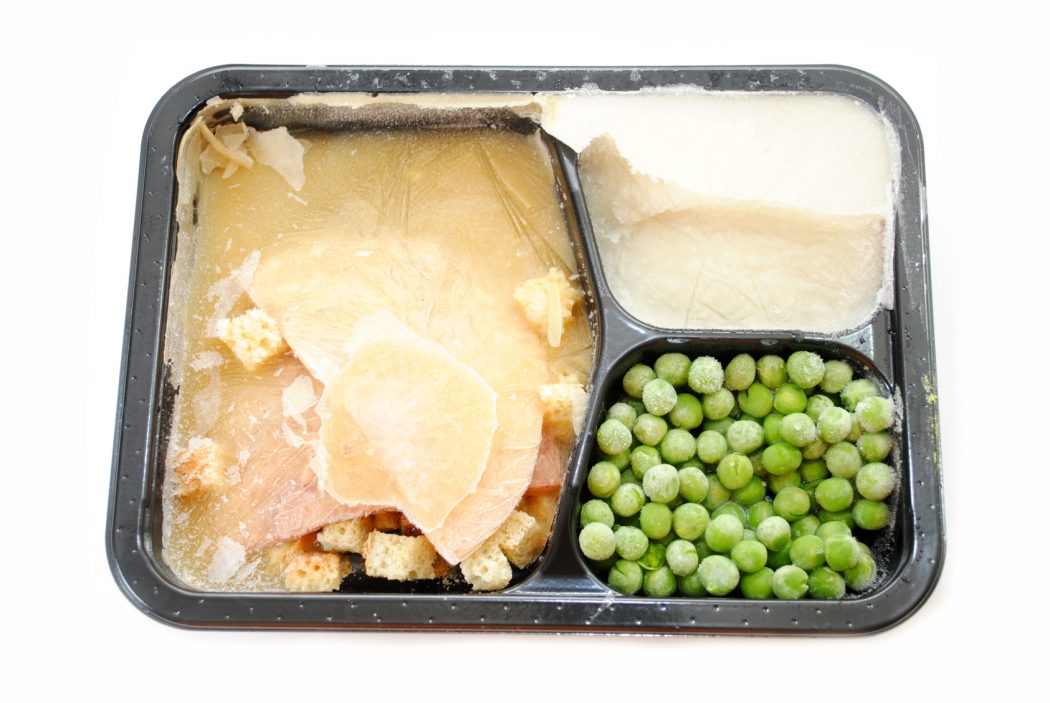It’s been more than 60 years since Gerry Thomas invented the TV dinner, yet it’s only now that researchers are beginning to understand the social implications of the way he changed our eating habits – such as the way his creation made it socially acceptable for members of the same household to eat by themselves.
“There’s a trend towards people eating in different rooms in the house,” says Dr Clare Collins, a dietician at The John Hunter Children’s Hospital in Newcastle. Even children are now eating alone in their bedrooms so they can watch television or play on their computer.
Atomisation
The change began in 1954 when Thomas created the Swanson TV dinner, and put it in a box designed to look like a television set. Millions of people abandoned the dining room to eat silently in front of I Love Lucy, choosing television over sharing food; Thomas’s frozen turkey meal appeared just as people were beginning to value convenience over quality.
But the convenience came at a price.
“We know that the quality of food eaten is better when you have food at the table,” says Collins. “Intuitively, people know that when you sit down you make more effort.”
Researchers at the University of Minnesota have discovered that children who eat regularly with their family eat more fruit and vegetables than those who don’t. The benefits don’t stop there: teenagers who eat regular family meals seem to do better at school, are less depressed and are less like to drink or smoke than those who eat less than twice a week with their families.
Collins says that preliminary Australian studies support the American research. Not only that, but these same studies show children actually want to eat with their families, even if it doesn’t seem that way when dinnertime comes.
“Kids want to be more involved,” says Collins. “They want to help with meal preparation more.”
Perhaps children know instinctively that sharing food offers psychological and social benefits as important as nutritional ones. Society is built on acts of reciprocity, the most fundamental of which is the sharing of food. Dining together teaches and reinforces manners and social obligations, and binds people to one another. As Margaret Visser points out in her book The Rituals of Dinner, sharing food is an act of deep trust. After all, that knife in every hand is actually a deadly weapon. It’s why the shared table has been a mark of civilisation since ancient days.
Dr Max Lake, the noted Australian winemaker, flavour researcher and hand surgeon, went further, arguing that the need to break bread together may be evolutionary in origin. “There’s a hormone that clicks in when we eat together,” he once said. “It’s oxytocin, a bonding hormone. If they give it to sheep in a herd they foster orphaned lambs.”
According to Lake, the rise in oxytocin is one reason why feasting is a sign of celebration and joy. He also suggested that sharing food may have a payoff in terms of longevity, and believed we flout our eating history at our peril.
Getting together
But just wanting everyone to sit down together isn’t going to make it happen, because we’re all too busy. And what do you do with a surly adolescent who insists on staying in his room? Collins says that teenagers often eat as soon as they get home, so by the time dinner has been prepared, they’re already full. She suggests parents get tough. “Just lock the pantry,” she says. “Or move your dinner forward. Prioritise family meals.”
And make the kids do all the work. After all, they’re the ones who keep telling researchers they want to be more involved, so get them washing and peeling. Finally, give up the idea that everything has to be home made. “Take advantage of healthy convenience foods,” says Collins. “If you can have home delivery, use it.”
She also recommends frozen vegetables. “They’re picked and frozen straight away, so a lot of nutrients are retained.”
If Lake is right, the simple act of gathering together around a table and eating together is just as important as the food itself. So if all else fails, microwave a TV dinner and some frozen veggies for everybody and serve them at the dining table. Then give thanks to Gerry Thomas, the man who made it all so easy.
Felicity Carter
This article original appeared in The Sydney Morning Herald




